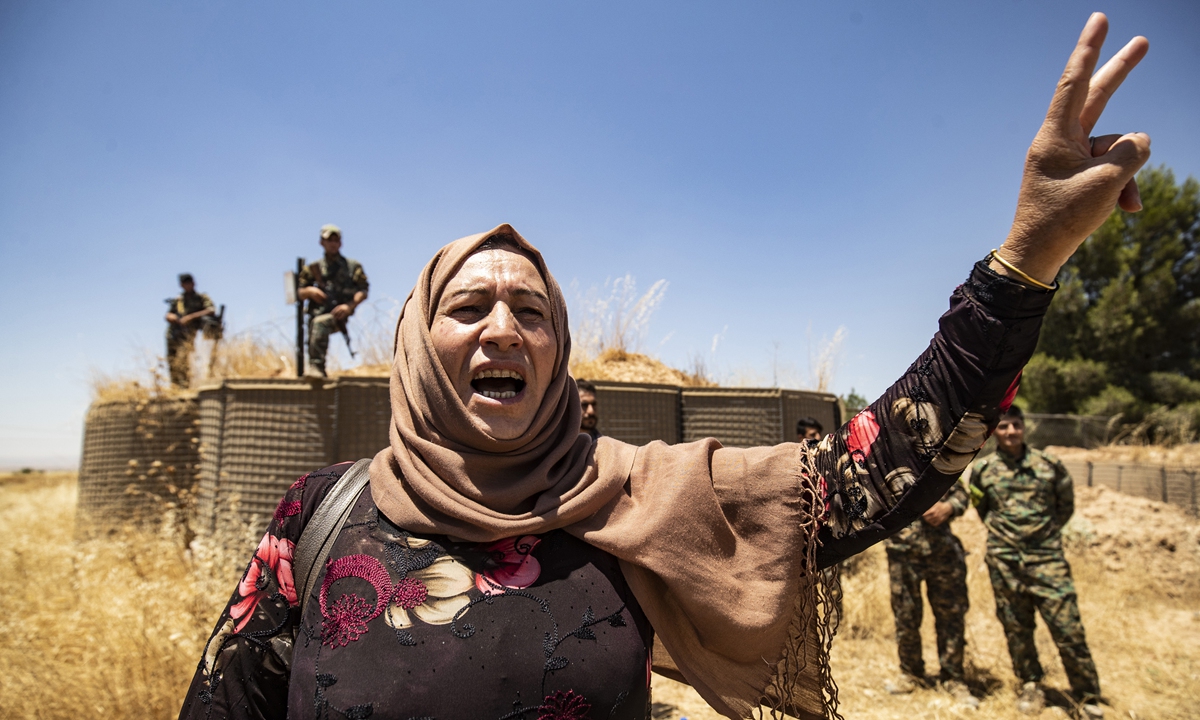Iran, Russia, Turkey agree to work together to ease Syria tensions
Source:AFP Published: 2020/7/2 17:58:40

A Syrian Kurdish woman chants slogans during a demonstration in front of a US base in the countryside of the Hasakah province, Syria on Saturday, to protest deadly Turkish offensives in the northeastern areas of the country. Photo: AFP
Iran, Russia and Turkey, which support opposing sides in Syria's war, agreed Wednesday to coordinate their efforts to reduce tensions in the country, whose conflict has entered its 10th year.The three "reiterated their determination to enhance the trilateral coordination," said a joint statement issued at the end of a video conference among their leaders.
The declaration also "emphasized their strong commitment to the sovereignty, independence, unity and territorial integrity" of Syria.
The talks were the first since September in the so-called Astana format, talks between the three main foreign powers in the Syrian conflict.
Iran and Russia have been staunch supporters of Syrian President Bashar al-Assad, while Turkey has called for the ouster of his regime and backed opposition armed groups.
The conference comes at a time when Russia-Turkey relations are tense not just over Syria but also Libya, another theater of war where Moscow and Ankara support opposing fighters.
But Iran's Foreign Minister Mohammad Javad Zarif described the talks as "constructive."
The three countries had "agreed to continue coordination... focusing on tension reduction, political processes and humanitarian relief," he tweeted.
Iran's President Hassan Rouhani told the conference "the Islamic republic believes the only solution to the Syrian crisis is political and not a military solution."
"We continue to support the inter-Syrian dialogue and underline our determination to fight the terrorism of Daesh [the Arabic acronym for the Islamic State group], Al-Qaeda and other related groups," he said.
"I emphasize that the fight against terrorism will continue until it is completely eradicated in Syria and the region in general."
Putin raised similar concerns.
He said the objective of the conference was to analyze the situation and agree on steps "to ensure the long-term normalization in Syria."
"Above all, it is a question of continuing the fight against international terrorism," he said.
AFP
Posted in: MID-EAST